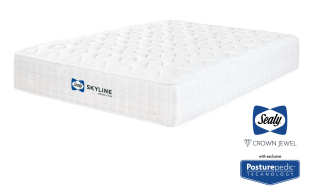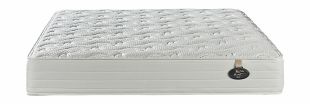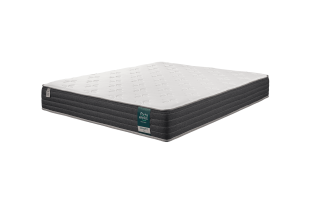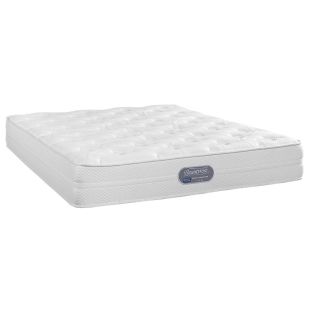Health benefits of sleeping early


Is An Earlier Bedtime Healthier?
“Yes. And no,” says sleep scientist Dr Dale Rae. “It’s all relative to what our natural bedtime and rising time is. Each of us has an inbuilt body clock, a circadian rhythm, that we need to pay attention to. Some people are naturally early sleepers and risers. Others tend to be later sleepers and risers. There are also the inbetweeners.”
“What is important is to monitor roughly the time that you naturally start to feel tired and ready for bed. Then plan your daily routine to incorporate your usual sleep time. Also, factor in that most of us need 7-9 hours of sleep a night.”
What if you can’t sleep when you want to?
Our time of life, family commitments and work demands can often affect our natural sleeping hours. We have only to think what it’s like with a new-born in the home and how personal time and priorities have to accommodate the screaming, feeding, bathing and nappy-changing of that tiny, demanding tot.
Then the kids grow up and we spend a good decade and a half seeing to their schooling, activities and general wellbeing. In the meantime, there are jobs and careers to pursue. Household chores need taking care of. If we could add more hours to the day, we’d sooner spend them sleeping.
Dr Rae’s sleep science team is all too familiar with the symptoms of poor sleep at different times of life. Sometimes, even if you are a naturally late sleeper, shifting your bedtime slightly earlier can have both physical and mental health benefits by allowing you to get sufficient sleep.
Let’s take a look at some possible scenarios.
When is it healthier to sleep earlier?
- Family commitments – As we’ve already seen, bringing up a family has its sleep challenges. Once the kids are of school-going age, they need to be managed first thing in the morning. That means an early morning start for parents as well. Often, the only evening hours moms and dads have to themselves are after the kids are put to bed. Even if you’re a naturally late sleeper, it may be beneficial over the long-term to attune your mind and body to an earlier sleep time. That way, you are more likely to get the amount of sleep you need when having to rally the family first thing every morning.
- Work schedules – Perhaps you work rotating shifts that have you up at all hours. You might have a demanding position that requires longer work hours. You could be chasing down a project deadline that requires additional time. A common challenge these days is working remotely in a different time zone. If the demands of your work schedule are ongoing, it can be beneficial to use the weekends to sleep a little earlier (if you are tired enough to fall asleep) and “catch-up” on the missed sleep. It is always better to try and get sufficient sleep throughout the week, but if you have to, catching-up on missed sleep is better than letting all the sleep debt rack up.
- Studying – If you’re an early sleeper and riser, you will likely use the first hours of the morning to do your serious reading and learning. If you’re a later sleeper and prefer the quiet of a late night to bury your head into your books, all good and well. Just be mindful of any early morning lectures. If you regularly have early morning lectures, you may have to slightly shift your natural sleep routine in order to get sufficient sleep to attend these lectures. Sleepy heads aren’t as good at taking notes. Be aware though that going to bed too early if you are a natural night-owl might mean you struggle to fall asleep. To this end, try to avoid shifting your bedtime earlier than 1hour on any given day. You can only fight your biology so much.
- Seasonal shifts – The longer daylight hours of summer and, correspondingly, the longer evening hours in winter can have an effect on our sleep patterns. Generally, it is advisable to keep to a regular sleep time, regardless of the season. Summer evenings tempt us to stay up later. A warm duvet may beckon earlier on a cold, dark evening. Again, you will know your ideal number of hours of sleep you need each night. Work back from your usual morning waking time to gauge the benefits, or potential drawbacks, of sleeping earlier.
Earlier sleep vs amount of sleep.
As we see, your stage of life will likely impact your sleep. There’s no getting around it. Yet aiming for the right type of deep, restorative sleep every night is still key to enjoying all the daytime health benefits. You want to be physically, mentally and emotionally at your best. If you tend to be a later sleeper, but have early morning commitments, it may be advantageous to sleep a little earlier, if only to sustain the sweet spot number of hours you need to sleep each night.
If you’ve experienced a prolonged period of sleep deprivation because of project or work demands, take the opportunity, as soon as things settle down, to pay back your sleep deficit and get a good few evenings of earlier sleep. You may even find that your body decides automatically for you. Exhaustion kicks in. Eventually you’ll just slump into an earlier bedtime, hopefully tucked comfortably in bed and not sprawled out on the couch.
If you find yourself juggling and not able to sleep properly, you may like to consult the Sleep Science team and get some practical assistance on how to make the best of your precious sleep hours. There are numerous sleep tactics and techniques that you could use to help manage, or alleviate, your sleep deprivation in the shorter-term. Generally, however, a regular, restorative sleep pattern is preferable, ensuring you get precisely the number of quality sleep hours you need each night. Learn more at www.sleepscience.co.za.
The earlier you get to Dial•a•Bed, the better.
When life seems to be in charge of your normal sleep routine, every precious hour you’re able to get some shuteye counts. That’s why you should have the perfect comfort and support in a mattress to ensure you enjoy the right quality of sleep. There’s nothing like the perfect mattress to entice you to bed a little earlier, or provide that desperately needed catch-up sleep. Visit South Africa’s largest branded bed store at www.dialabed.co.za. Then make time to visit your nearest store and experience the dream sleep you deserve, every night. #SleepForLife.
TAKE CARE: Lifestyle recommendation is not medical advice. Always consult your healthcare professional should you be experiencing prolonged sleep difficulties or related health issues.









